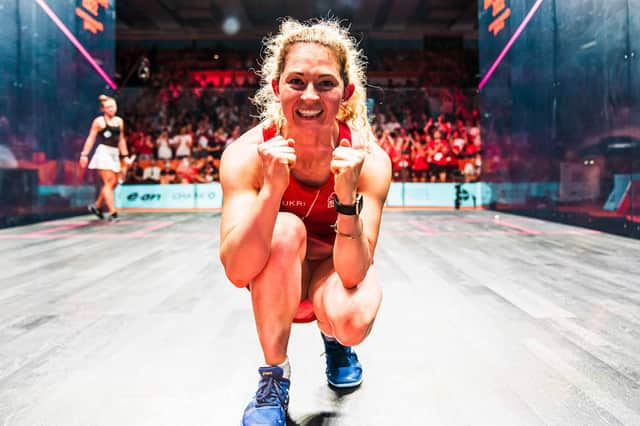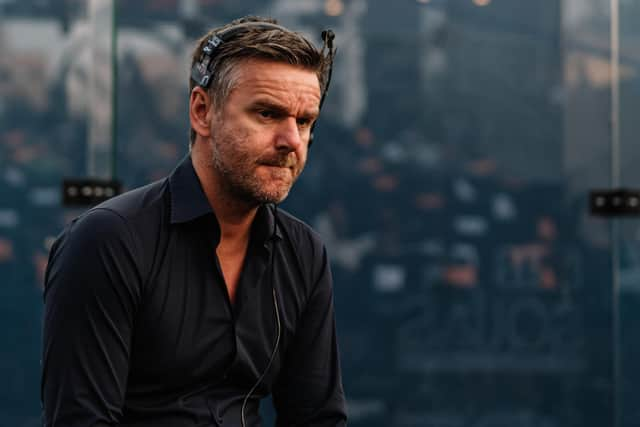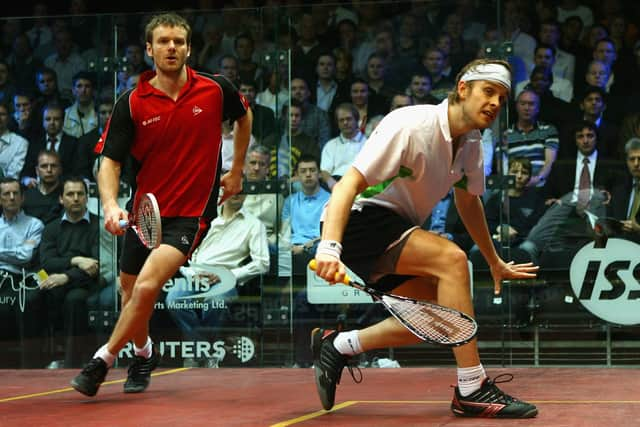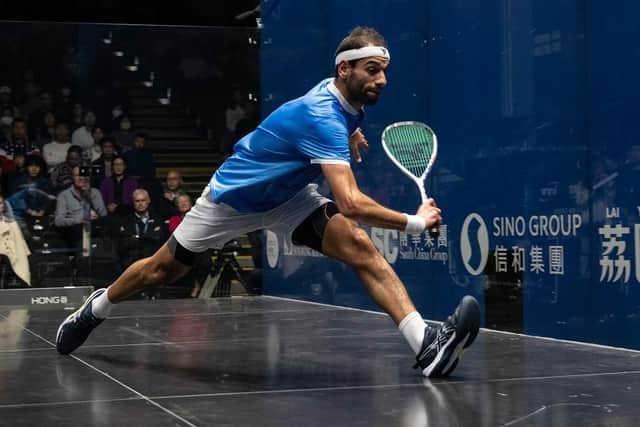How squash is continuing to evolve and aims to make the most of its Olympics opportunity at LA2028


For so long the jilted party each time it applied for inclusion - London 2012 saw it briefly included only to fall out again when the number of sports was reduced - it was almost expected that it would fail again when applying to be part of the 2028 Games, held in Los Angeles.
The underdog story of being repeatedly knocked down has eventually produced a deserved happy ending.
Advertisement
Hide AdAdvertisement
Hide AdThe fact the sport is on an upward curve in the USA, certainly helped it get finally over the line.


There have been some tough times along the way for a sport which seemed to epitomise the very Olympic ideals it aspired to be a part of.
On occasion, there was complete bewilderment on the part of many people in the game who couldn’t comprehend its continued status as an outsider, the lowest point coming when it was ignored in favour of breakdancing for Paris 2024.
But, since its inclusion was confirmed in October last year, that ‘status’ has now changed.
Advertisement
Hide AdAdvertisement
Hide AdWhere at times it may have proved harder for the sport’s administrators to attract funding or further investment, that situation has now changed for the better.


Former world No 1 Lee Beachill, from Huddersfield, is one of those administrators whose job it will now be to work alongside the LA 2028 organisers over the coming years to ensure squash seizes its moment in the spotlight and showcases it in the best possible way.
Beachill has been chief operations officer for the Professional Squash Association since 2010, swiftly following on from a playing career that ended early at age 31 due to injury.
Back in 2004, Beachill was the first English-born player to become world No 1, one of the highlights in a career that saw him win Commonwealth Gold Medals in Manchester and Melbourne, World Team titles with England and three British National Championships.
Advertisement
Hide AdAdvertisement
Hide AdFor someone who had dedicated his life to the sport since an early age, coming under the coaching stewardship of the late Malcolm Willstrop - based in Pontefract - it was perhaps no surprise that Beachill remained so close to the sport, able to offer a players’ perspective at a time when the sport was trying different ways to widen its appeal and reach.


Like others in the sport, Beachill has been there for the low points when squash didn’t get its Olympic green light. He has also been there to ensure that the sport hasn’t suffered as a result, proving itself able of constantly evolving and finding innovative ways of broadening its audience.
“We’ve become very self-sufficient as a sport without the Olympics,” said Beachill from his Leeds-based office. “And we’ve done a really good job of building the sport, in particular at a professional level, without having that sort of absolute pinnacle (such as the Olympics) for our players to play in.
“But obviously now it has come around and we’ve got a shot at it, it really is the icing on the cake.
Advertisement
Hide AdAdvertisement
Hide Ad“We’ve never had the Olympic cycle of funding which a lot of sports survive on for four years until the next Olympics come around, we’ve had to find our own revenue streams and become commercially self-sufficient. Now the Olympics has come at a stage where it is a real massive bonus for us as a sport, on top of everything else and a lot of the good work that has already been done around the world.”
The talks with LA2028 organisers have already begun for Beachill and others in the game, with nothing but positive feedback.
“The communication with LA has so far been so good,” said Beachill. “They are a really pro-active group and we hope that is going to continue and indeed grow as we get closer to the Games.
“For us, as a sport, honestly between now and then we’ll be doing probably exactly the same as we will have been doing anyway because we already have a really clear vision at the top of the game of where we need to go and how we need to get there.
Advertisement
Hide AdAdvertisement
Hide Ad“The structure of the PSA has changed over the past year or so with regards to external investment into the sport and that’s given us a real shot in the arm, as well as the Olympics, in order to drive the strategy.
“The Olympics has always been part of that strategy. Now there is this real focus in four years’ time which gives everyone a bit of a target which is fantastic.
“Our sport, certainly the professional sport, will continue to grow and grow beyond the 2028 Olympics and, hopefully, into the next Olympics.”
Timing, as with most things, is everything. For the likes of Beachill and other top British players from recent years such as Nick Matthew, James Willstrop, Laura Massaro, Jenny Duncalf and countless others, the Olympic call comes too late.
Advertisement
Hide AdAdvertisement
Hide AdEven those currently at the top of the world game may find that four years from now Los Angeles is just the wrong side of them having a realistic chance of going for gold.
“There’ll certainly be a number of players now questioning whether they can hang on for another four years or so and how they can potentially make an Olympic Games,” said Beachill. “But there is no doubt that there are going to be a number of players at the top of the game now - incredible legends of the sport - who are probably not ever going to play in an Olympics and that’s a fairly sad part of it.
“But that would have been the case regardless of whatever Games we had made.
“You hear players say that they would trade a lot of their different medals and trophies and titles for just a crack at one Olympic gold - I can assure you, in squash, they are not exaggerating when they say that.”